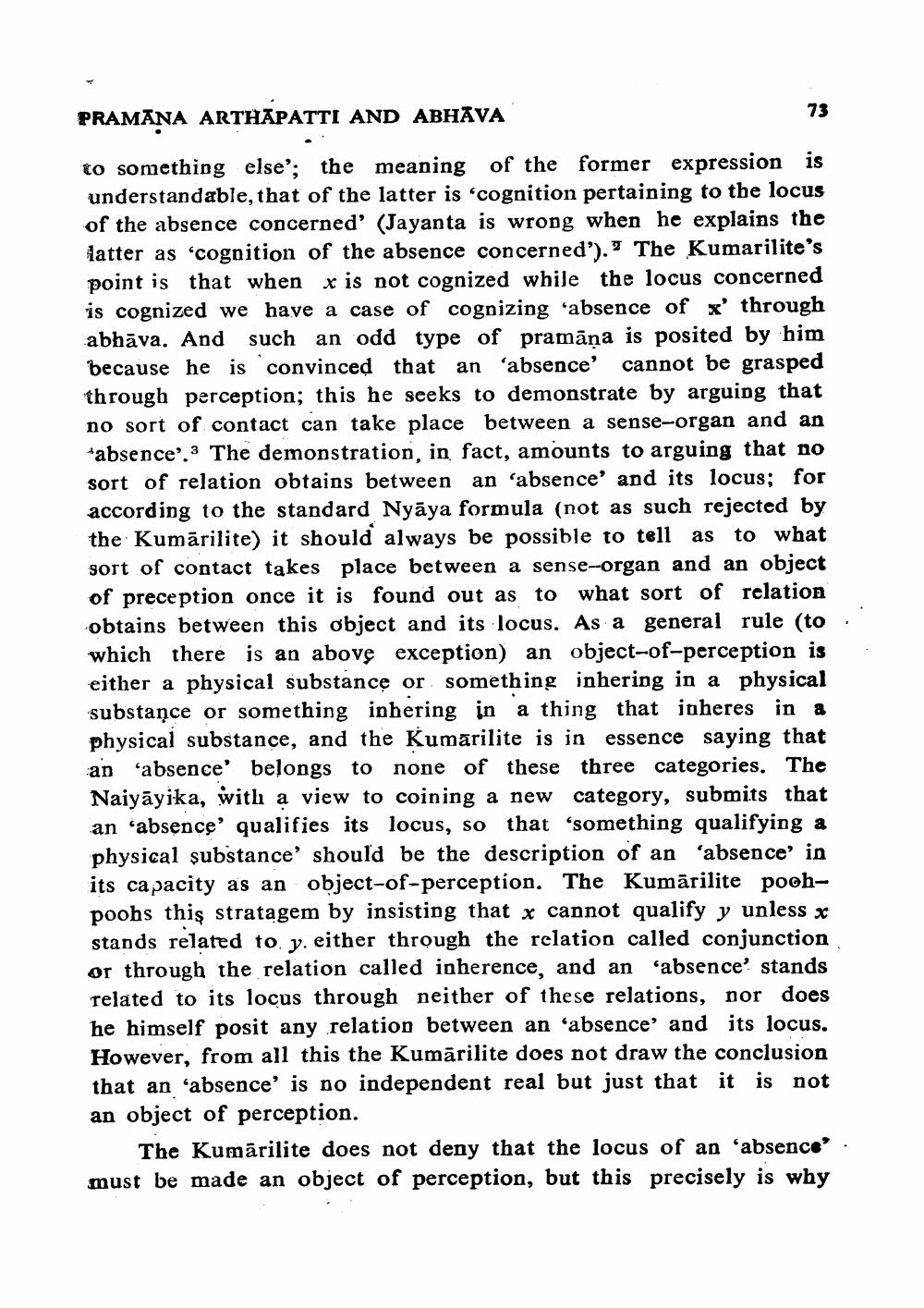________________
PRAMANA ARTHAPATTI AND ABHAVA
to something else'; the meaning of the former expression is understandable, that of the latter is 'cognition pertaining to the locus of the absence concerned' (Jayanta is wrong when he explains the latter as 'cognition of the absence concerned').' The Kumarilite's point is that when x is not cognized while the locus concerned is cognized we have a case of cognizing 'absence of x' through abhāva. And such an odd type of pramāna is posited by him because he is convinced that an 'absence' cannot be grasped through perception; this he seeks to demonstrate by arguing that no sort of contact can take place between a sense-organ and an absence'.3 The demonstration, in fact, amounts to arguing that no sort of relation obtains between an 'absence' and its locus; for according to the standard Nyāya formula (not as such rejected by the Kumārilite) it should always be possible to tell as to what sort of contact takes place between a sense-organ and an object of preception once it is found out as to what sort of relation obtains between this object and its locus. As a general rule (to which there is an above exception) an object-of-perception is either a physical substance or something inhering in a physical substance or something inbering in a thing that inheres in a physical substance, and the Kumarilite is in essence saying that an 'absence' belongs to none of these three categories. The Naiyāyika, with a view to coining a new category, submits that an 'absence' qualifies its locus, so that 'something qualifying a physical substance should be the description of an 'absence' in its capacity as an object-of-perception. The Kumārilite poohpoohs thiş stratagem by insisting that x cannot qualify y unless x stands related to. y. either through the relation called conjunction or through the relation called inherence, and an 'absence? stands related to its locus through neither of these relations, nor does he himself posit any relation between an 'absence' and its locus. However, from all this the Kumārilite does not draw the conclusion that an 'absence' is no independent real but just that it is not an object of perception.
The Kumārilite does not deny that the locus of an 'absence'. must be made an object of perception, but this precisely is why




